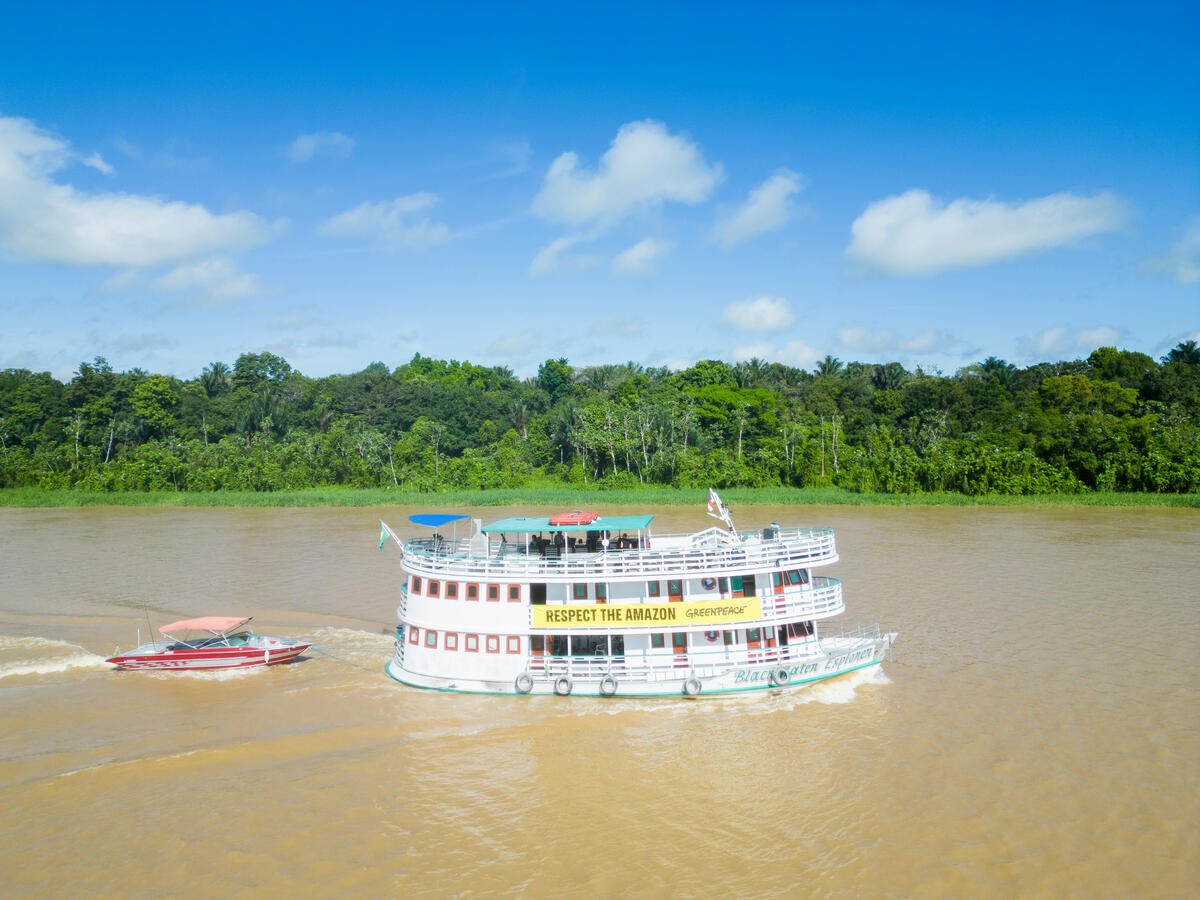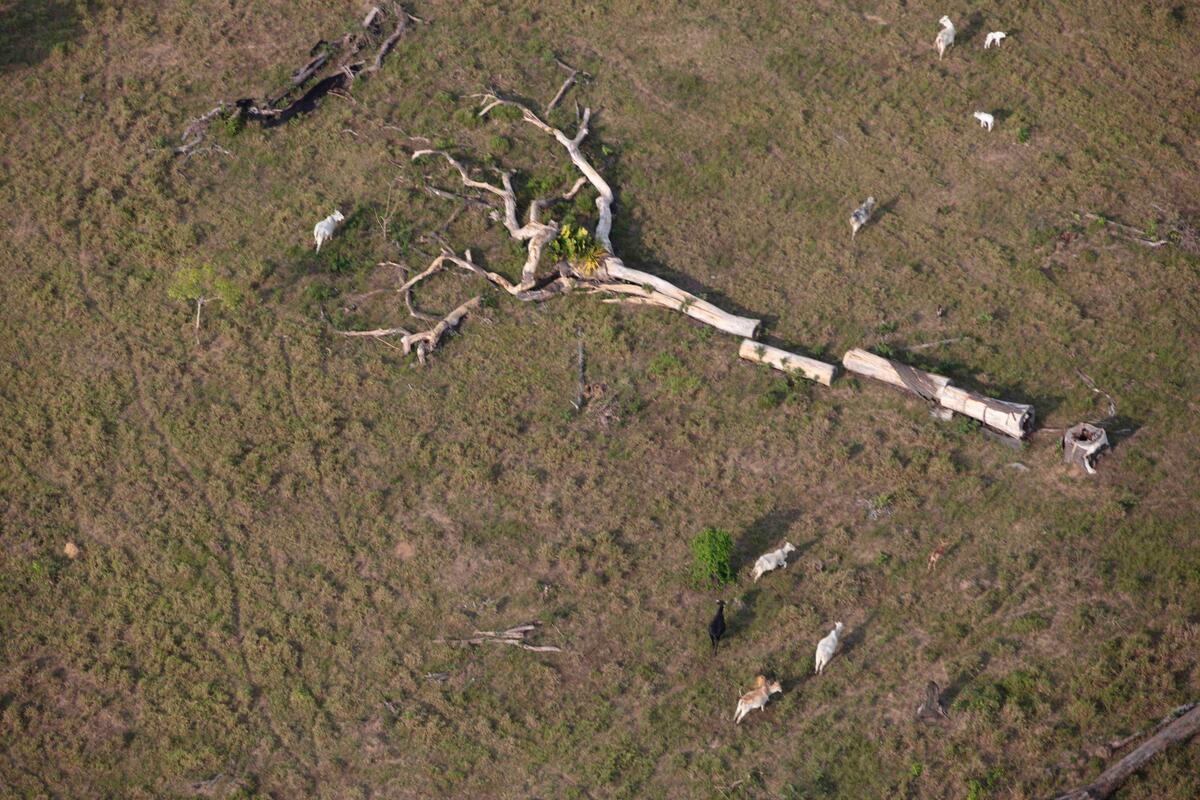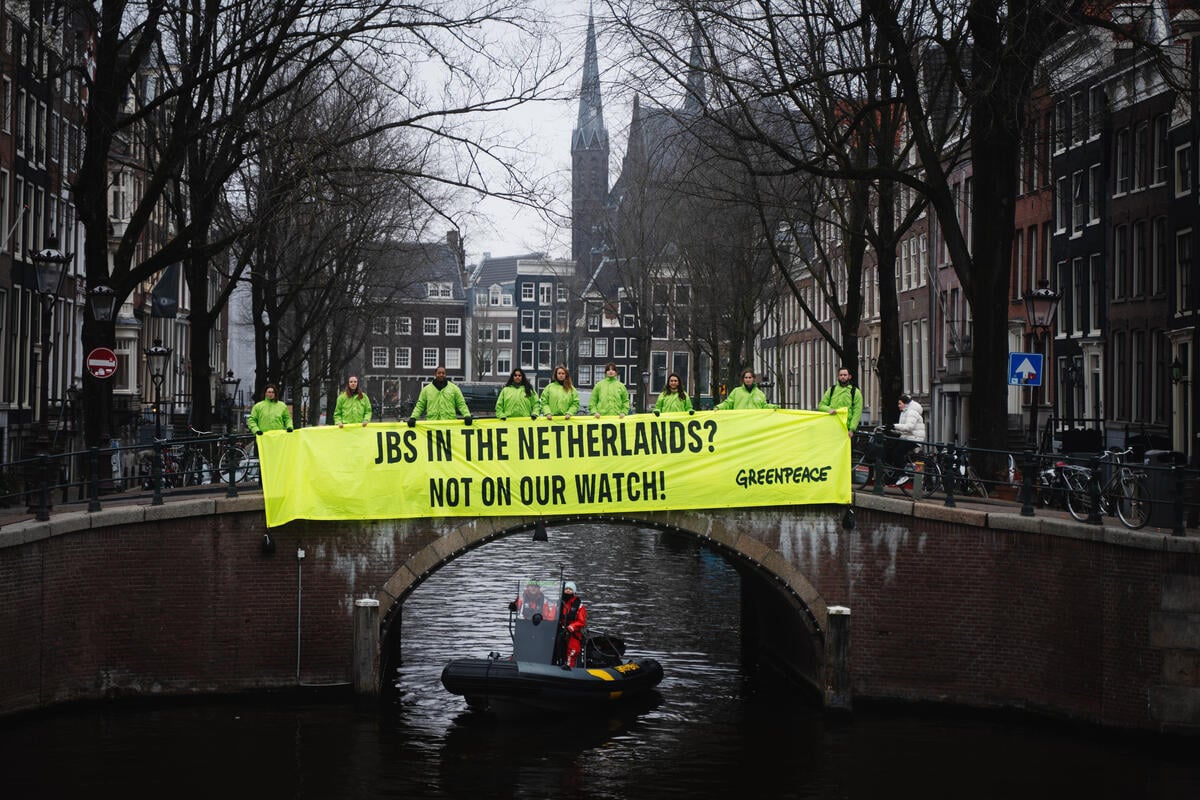Once again, government officials and politicians are returning home from the climate negotiations at COP26 in Glasgow with their bags full of promises and pledges to tackle the climate crisis, including lofty pledges to stop deforestation by 2030. We’ve been here before, and we all know that we can’t afford to waste another decade watching the wrecking of valuable ecosystems vital for Indigenous people, climate protection and countless species.
That’s why all eyes are on the European Commission’s announcement of their new law to cut the EU’s complicity in global forest destruction and the human rights violations that go with it.
At the moment, people in Europe have no guarantee that what they put in the shopping basket – food, coffee, soap, paper, you name it – doesn’t link them to deforestation. Similarly, there’s no requirement for European banks to show that their investments aren’t financing ecosystem destruction.
Through their high consumption, the countries of the EU are responsible for 17% of tropical deforestation linked to internationally traded commodities like meat, palm oil or soy. The EU’s own forests are also suffering as they are increasingly fragmented and losing biodiversity.
A year ago, over 1.1 million people mobilised to demand an EU law requiring companies selling products on the EU market to show that their supply chains are clean of forest or ecosystem destruction, or human rights abuses – and for banks operating in the EU to show their investments are clean too. Brave activists climbed the European Commission’s headquarters in Brussels to show how the EU is complicit in ecosystem destruction and demand a new EU law to stop it. The European Parliament demanded the same thing, and even the European Commission’s own studies did too.
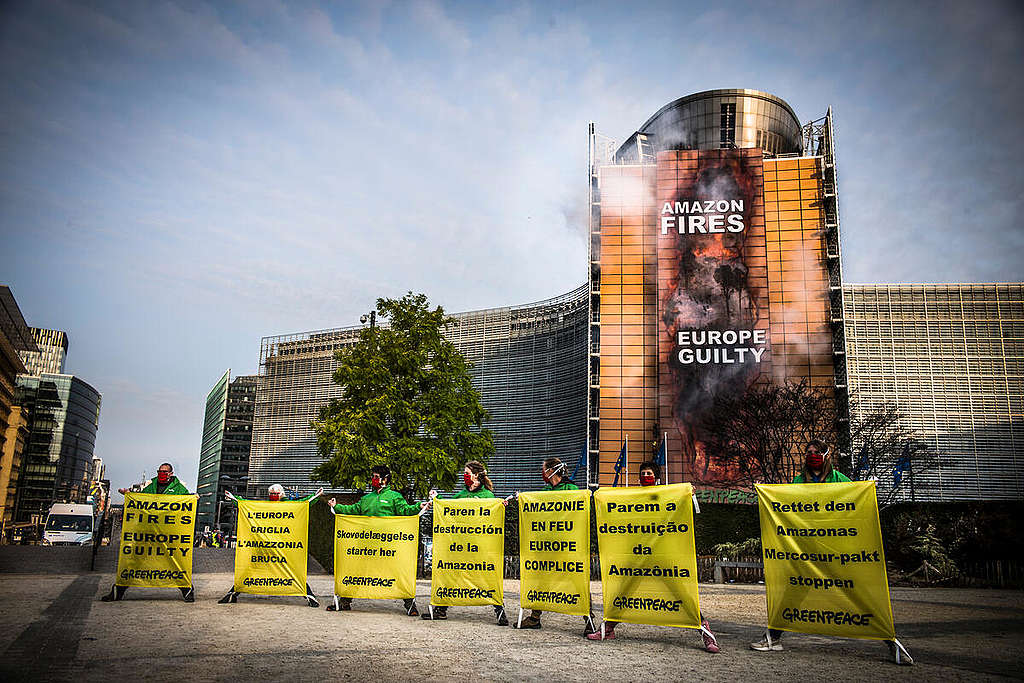
It seems like EU leaders have heard us. Just the other day, the President of the European Commission herself said at the COP26 in front of other world leaders: “European voters and consumers are making this increasingly clear to us: They no longer want to buy products that are responsible for deforestation or forest degradation.”
But is the European Commission delivering on its promises?
Well, what they are proposing is almost a historic step, with some hesitation. Let’s say it’s a historic shuffle – with some serious stuff missing.
What’s good?
While governments of other high-consuming countries like the UK and the US have so far only promised to cut their contribution to illegal deforestation, the EU will finally go further than this, aiming to tackle all forest destruction whether it is sanctioned by the national government or not. A destroyed forest is a disaster for nature and the climate, whether the local authorities approve it or not.
For the first time, companies selling certain products that pose a high risk to forests would have to actually know where their commodities come from, and apply environmental sustainability criteria.
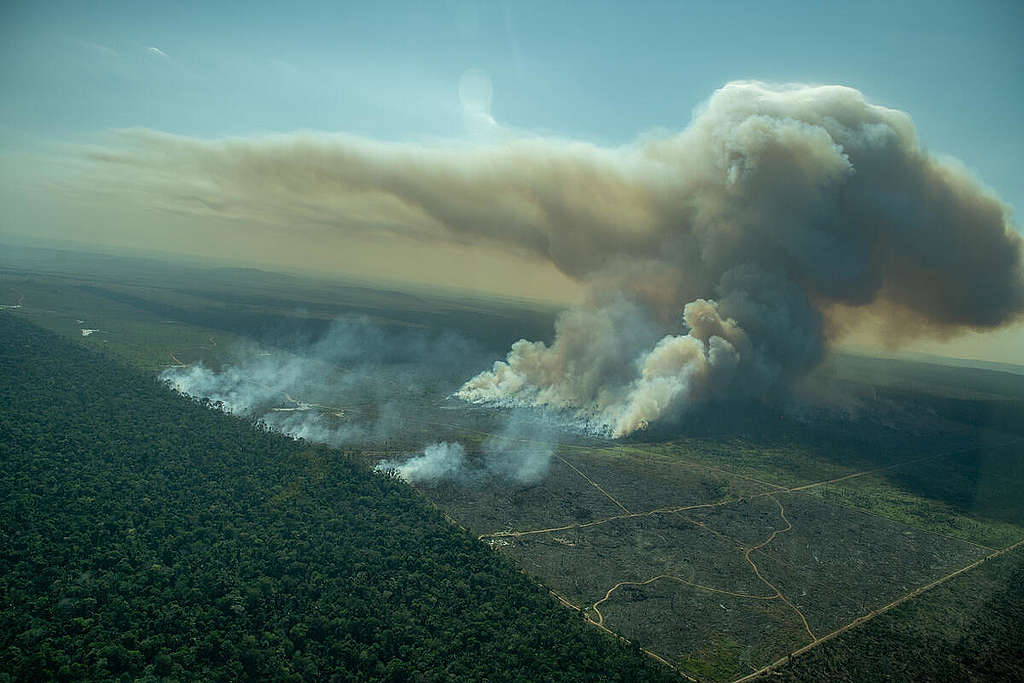
What’s missing?
The proposed law only aims to protect forests, leaving other ecosystems vulnerable, such as savannas like the Brazilian Cerrado and wetlands like the Pantanal. This gives a free pass for the soy industries supplying factory farms to make major profits destroying the Cerrado.
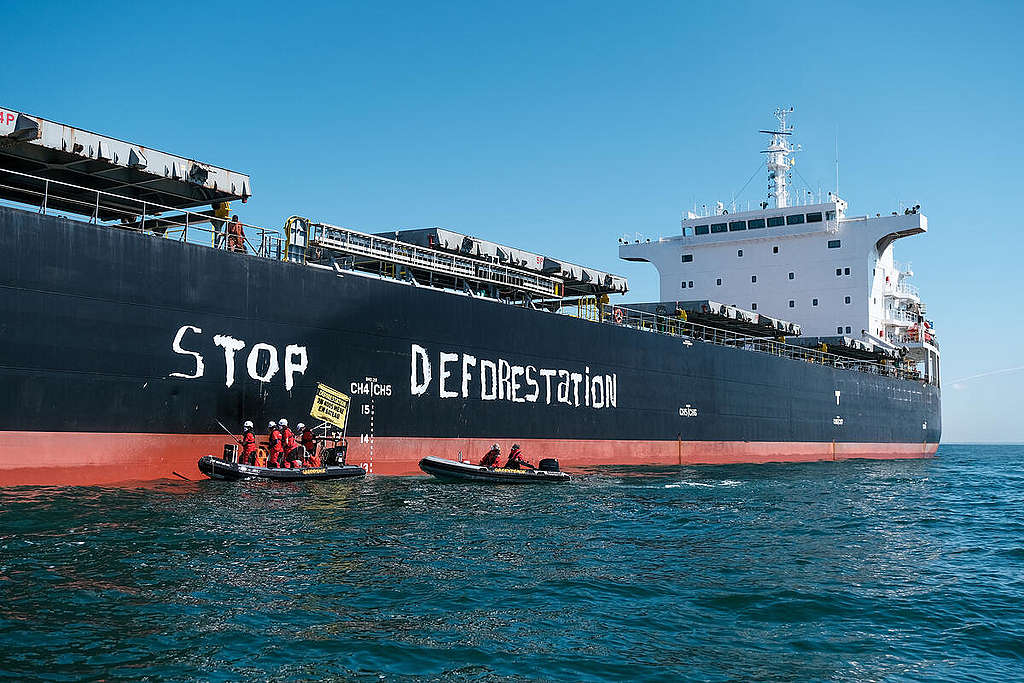
The law would only cover a limited number of products linked to ecosystem destruction, ignoring lots of products linked to nature destruction, like rubber, maize, pork and poultry. This is detrimental, as for example, for forests in Cameroon and the rest of the Congo Basin, rubber plantations are responsible for the displacement of Indigenous People like the Baka and are threatening natural reserves of international importance.
The European Commission’s plan still leaves the rights of many Indigenous and local communities unprotected. Rather than demanding that companies supplying the EU market abide by international laws, they would leave it up to national leaders like Brazil’s president Bolsonaro to define what “human rights protection” means.
The law also completely ignores the finance sector and the impacts its investments have on ecosystems. Lenders based in the EU’s 27 member states have made an estimated €401 million in proceeds from forest destruction alone since 2016.
There’s already been fierce resistance from those who represent the interests of big corporations, unrestricted trade. The Commission’s own trade services were exposed trying to weaken the new rules. Corporations themselves have used every possible argument to convince the Commission not to act, for example saying that their dodgy certification schemes are enough to show they are “sustainable”.
But the fight is not over, the political negotiations are just beginning, and we can still patch up these terrible holes in the proposed EU law. We must put pressure on the EU’s national governments and members of the European Parliament to really protect the world’s forests, other ecosystems and human rights.
That’s why we need your voice to secure a strong EU law to protect forests and other ecosystems – and the human rights of the people who live there.
Help us grow the movement of people standing #Together4forests by sharing the video below.
Sini Eräjää is agriculture and forests campaigner with the Greenpeace European Unit

